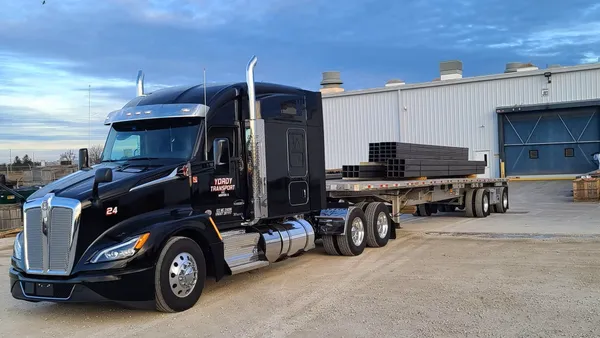Dive Brief:
- Regarding electronic logging device (ELD) implementation, the Federal Motor Carrier Safety Administration (FMCSA) issued a 90-day waiver for truckers hauling agricultural products, according to Transport Topics.
- The FMCSA has also issued waivers for livestock and fresh produce haulers.
- The move comes as many industries face implementation difficulties — the technology doesn't seem to be equally well-suited for all industries, so the transition is bumpier than expected.
Dive Insight:
Since the ELD mandate went into effect at the end of 2017, truckers and shippers alike have expressed skepticism that the devices would actually improve operations within various supply chains.
The ELD mandate has generated mixed reviews, but even the FMCSA seems to agree a hard deadline for all industries may have not been the best idea. Hauling livestock, fresh produce and other agricultural products are sensitive endeavors, requiring specific transit temperatures and conditions.
Furthermore, some believe the ELD mandate is aggravating the trucking capacity crunch — truck drivers were already at odds with some trucking companies and 3PLs, and because the driver turnover rate is at almost 100% and volumes continue to climb, capacity is tightening, prompting some shippers to focus on LTL shipments as opposed to full truck loads.
These combined factors are hitting some industries harder than others, which means a far bumpier transition for more sensitive shipments containing livestock, produce and agricultural products. Implementing the ELD in this kind of environment could result in delays, spoilage and driver violations as drivers struggle to protect and deliver shipments on time and intact.
The FMCSA's waiver could alleviate some of those industry pressures, but if driver tensions continue, there may need to be a different long-term solution.













